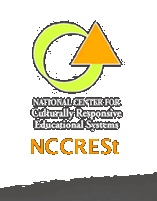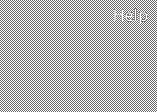
---
---
---
---
---

 |
 |
NCCREStpart of the Education Reform NetworksTeaching More about Korea: Lessons for Students in Grades K-12The lessons in this book may be used as a unit of study on Korea or as supplemental lessons to ongoing social studies programs. The book is divided into seven parts with lesson plans in each area. Part 1, "Language," contains: (1) "The Korean Alphabet" (John Hoge); and (2) "Korean Expressions" (Harold Christensen). Part 2, "Geography," includes: (1) "Korea's Climate" (Harold Christensen); (2) "Parallel Peninsulas" (Theron L. Trimble); and (3) "Learning About Korea" (Charles Holt). Part 3, "History," focuses on: (1) "Kyongju - Capital of Ancient Korea" (Sharon Goralewski); (2) "Teaching About the Korean War With Documents" (Beth Haverkamp); (3) "Two Koreas" (Theron L. Trimble); and (4) "Together Again?" (Theron L. Trimble). Part 4, "Culture," emphasizes: (1) "Korean Cultural Artifact" (John Hoge); (2) "South Korea and Its Culture" (Mariam Baradar); (3) "Family Celebrations" (Mary Haas); (4) "Korean Culture Mystery Box" (Marlene M. Johnson); (5) "Using Korean Numbers" (Harold Christensen); (6) "Korea's Vision for the Future" (William Wilen); and (7) "East Meets West" (Burnell Peterson). Part 5, "Economy," examines: (1) "Characteristics of Korea Today" (Mary Haas); (2) "Korea: Still Land of the Morning Calm?" (Rick Borries); (3) "Graphing South Korea's Industrial Growth" (Harold Christensen); and (4) "Korea: A Model for Development" (Gail Tamaribuchi). Part 6, "Literature," suggests: (1) "Impossible Goodbyes" (Arthur Svensen); (2) "Using Korean Literature: Village Life and Customs" (Gregory Tumminio); (3) "Using Korean Literature: Korea's Tragic Past" (Gregory Tumminio); (4) "Using Korean Literature: Korean Symbols" (Gregory Tumminio); (5) "Using Korean Literature: Political Conflict and Personal Relationships" (Gregory Tumminio); and (6) "Using Korean Literature: Gender and Korean Society" (Gregory Tumminio). Part 7 offers "Resources on Korea" with "Using the Internet to Explore Korea" (S. Rex Morrow). (EH)
This resource is cataloged under:
More like this one
| edreform.net
|
 Funded by the
Funded by the